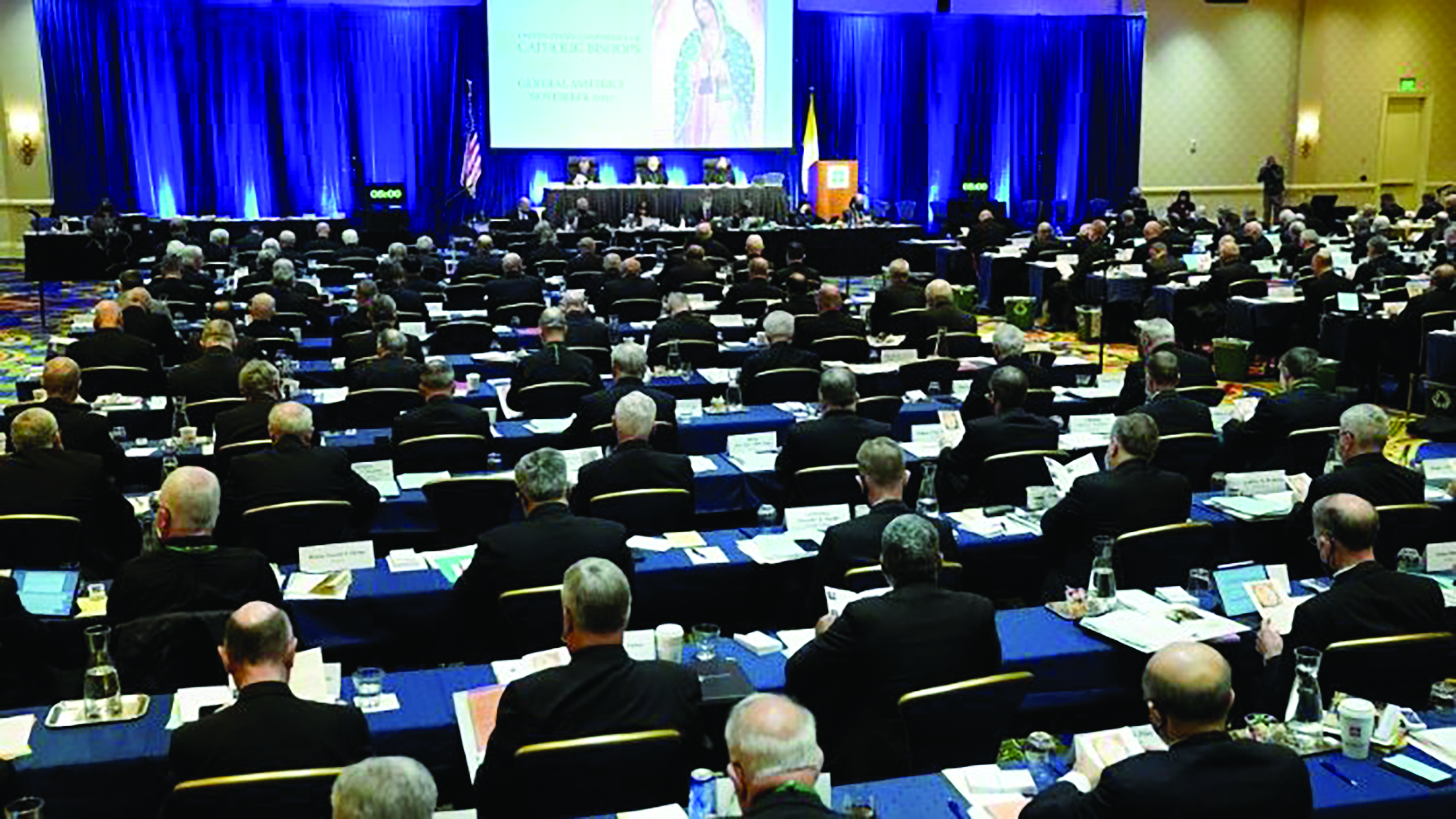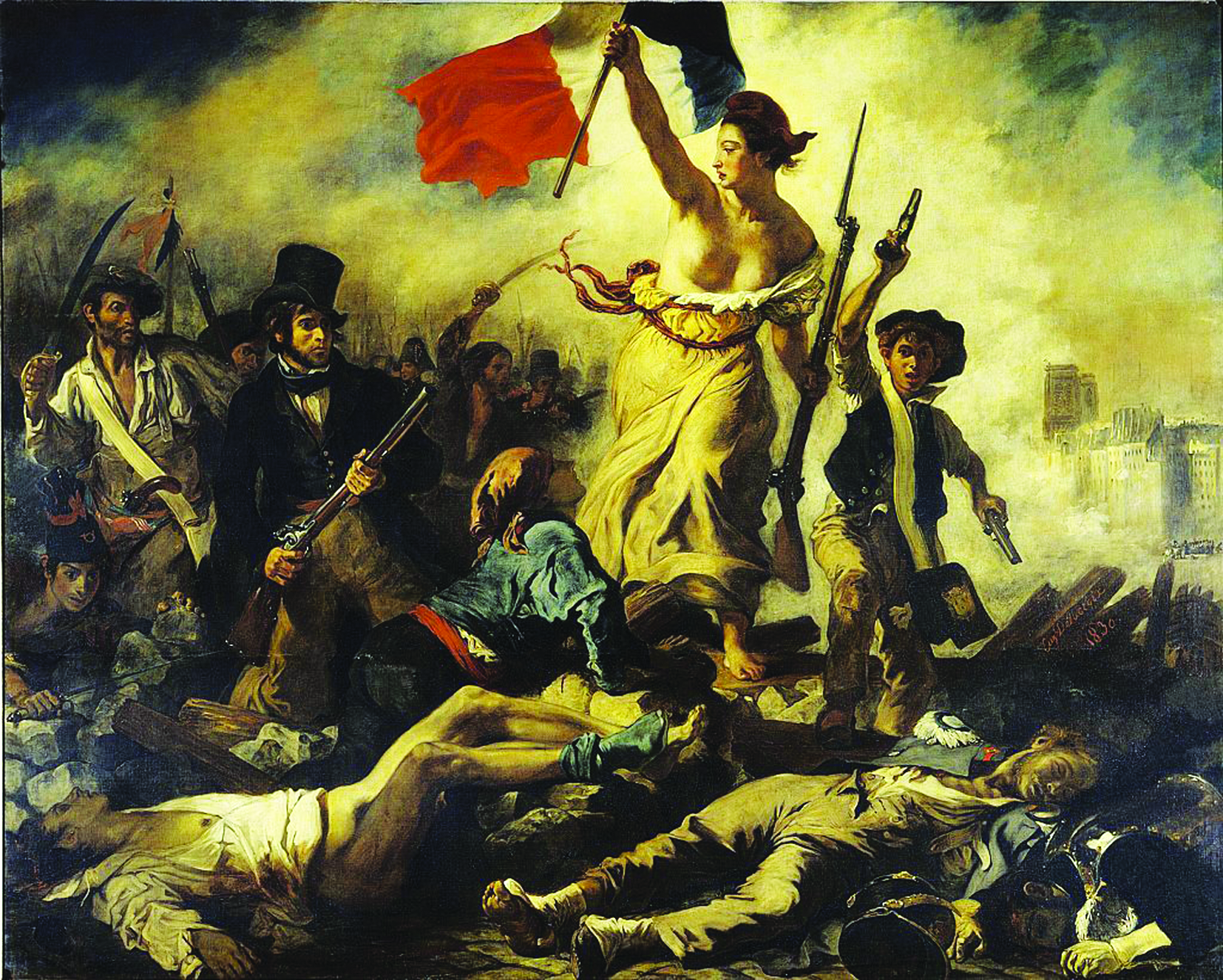The Pope’s historic visit to the United States, in his own words:

Pope Francis during the homily at the Mass celebrated with the bishops, clergy, and men and women religious of Pennsylvania at the Cathedral of Saints Peter and Paul on Saturday, September 26 in Philadelphia
…And so I wanted to encourage the continuation of social construction faithful to the United States’ fundamental principle, that all men are created by God, equal and endowed with inalienable rights, such as life, liberty, and the pursuit of happiness. These values, shared by all, find their fulfillment in the Gospel, as was clearly shown by the canonization of Fr. Junipero Serra, a Franciscan, the great evangelizer of California. St. Junipero shows us the way to joy: going forth and sharing Christ’s love with others. This is the way of Christians, but also of any person who has known love: not to keep it to oneself but to share it with others. The United States of America have grown on this religious and moral base, and on this base they can continue to be a land of freedom, welcome and cooperation for a more just and fraternal world.
The culmination of the trip was the World Meeting of Families in Philadelphia, where the horizon extends to all the world through the “prism” of the family. The family is the answer to the great challenge of our world, which is a dual challenge: fragmentation and solidification, two extremes which co-exist, support each other, and together support the consumerist economic mode…it is the cell of a society which balances the personal and community dimensions, and is at the same time the model for a sustainable management of the goods and resources of creation. The family is the protagonist of an integral ecology, as it is the primary social subject which contains within itself the two basic principles of human civilization on earth: the principles of communion and fruitfulness.
Biblical humanism presents us with this icon: the human couple, united and fruitful, placed by God in the garden of the world to cultivate it and protect it…
— Pope Francis, from his General Audience remarks, Wednesday, September 30
September 22, 2015 Washington
After arriving at Joint Base Andrews, Pope Francis was welcomed at the White House by President and Mrs. Obama in a brief garden ceremony, where he spoke of desiring encounter with the American people, of faithfulness to the nation’s founding principles, and of care for our “common home.”
He also made it a point to mention, turning his gaze to Mr. Obama, the issue of “religious liberty”:
American Catholics are committed to building a society which is truly tolerant and inclusive, to safeguarding the rights of individuals and communities, and to rejecting every form of unjust discrimination. With countless other people of good will, they are likewise concerned that efforts to build a just and wisely ordered society respect their deepest concerns and their right to religious liberty. That freedom remains one of America’s most precious possessions.
The Pope, invited by Speaker John Boehner to address the U.S. Congress (a historical first), entered the chambers later that day to sustained applause. Early in his address, he reminded the lawmakers of their mission, which he also called a “vocation”:
Yours is a work which makes me reflect in two ways on the figure of Moses. On the one hand, the patriarch and lawgiver of the people of Israel symbolizes the need of peoples to keep alive their sense of unity by means of just legislation. On the other, the figure of Moses leads us directly to God and thus to the transcendent dignity of the human being. Moses provides us with a good synthesis of your work: you are asked to protect, by means of the law, the image and likeness fashioned by God on every human face.
The Pope’s talk was built around the themes of four famous Americans: Abraham Lincoln, Martin Luther King, and Catholics Dorothy Day and Thomas Merton:
A nation can be considered great when it defends liberty as Lincoln did, when it fosters a culture which enables people to “dream” of full rights for all their brothers and sisters, as Martin Luther King sought to do; when it strives for justice and the cause of the oppressed, as Dorothy Day did by her tireless work, the fruit of a faith which becomes dialogue and sows peace in the contemplative style of Thomas Merton.

September 24, Washington D.C. Apostolic journey of Pope Francis. Pope Francis’ visit to the Congress of the United States of America
September 24-25, 2015 New York

The evening of September 24 in New York. Celebration of Vespers by Pope Francis with the clergy and men and women religious at St. Patrick’s Cathedral
Like Popes Paul VI, John Paul II, and Benedict XVI before him, Pope Francis addressed the United Nations while in New York. He repeated themes that have marked his pontificate thus far: care of the natural and human environments, including the “vast ranks of the excluded”; peace in the Middle East and the world; the primacy of human dignity.
Here are a few excerpts from his talk at the U.N.:
The misuse and destruction of the environment are also accompanied by a relentless process of exclusion. In effect, a selfish and boundless thirst for power and material prosperity leads both to the misuse of available natural resources and to the exclusion of the weak and disadvantaged… The poorest are those who suffer most from such offenses, for three serious reasons: they are cast off by society, forced to live off what is discarded and suffer unjustly from the abuse of the environment. They are part of today’s widespread and quietly growing “culture of waste.”
I must renew my repeated appeals regarding the painful situation of the entire Middle East, North Africa and other African countries, where Christians, together with other cultural or ethnic groups, …have been forced to witness the destruction of their places of worship, their cultural and religious heritage, their houses and property, and have faced the alternative either of fleeing or of paying for their adhesion to good and to peace by their own lives, or by enslavement.
The common home of all men and women must continue to rise on the foundations of a right understanding of universal fraternity and respect for the sacredness of every human life… the poor, the elderly, children, the infirm, the unborn, the unemployed, the abandoned, those considered disposable because they are only considered as part of a statistic.
…To repeat the words of Paul VI, ‘the edifice of modern civilization has to be built on spiritual principles, for they are the only ones capable not only of supporting it, but of shedding light on it.’
September 25, New York City. Pope Francis’ visit to the Headquarters of the United Nations. The Holy Father speaks to the General Assembly
September 26-27, 2015 Philadelphia

September 26, Philadelphia. Pope Francis’ visit to Independence Mall. The Holy Father meets the Hispanic community and other immigrants
The Pope’s visit to Philadelphia, site of the 2015 World Meeting of Families, was, in some sense, the climax of his entire U.S. visit. The Pope arrived on Saturday, September 26 for a two-day round of events:
— The Pope said Mass at the historic Cathedral Basilica of SS. Peter and Paul, the largest brownstone structure in the city, which has stood since 1864.
— Students and teachers at St. Charles Borromeo Major Seminary in Wynnewood greeted the Pope, where he also met with bishops at the chapel there.
— Francis gave a speech on religious freedom and immigration before 50,000 at Independence National Historical Park, where he used the same podium used by Abraham Lincoln for his Gettysburg Address.
— At the Festival of Families on the Benjamin Franklin Parkway, soul singer Aretha Franklin, Italian tenor Andrea Bocelli, Colombian rock musician Juanes, comedian Jim Gaffigan and host Mark Wahlberg were among others who entertained Pope Francis and exuberant crowds. The pontiff closed the event with an impassioned, extemporaneous defense of the family as a “factory of hope.”

— Prisoners at the troubled, overcrowded Curran-Fromhold Correctional Facility in North Philadelphia prepared a special chair for Francis to give him as a gift when he visited there.

On Sunday, September 27, Philadelphia, Pope Francis visited detainees at Curran-Fromhold Correctional Facility. He met and spoke with each one individually
— Hundreds of thousands attended the closing Mass for the World Meeting of Families celebrated by Francis before leaving the U.S.
From the Pope’s talk given in the shadow of Independence Hall in Philadelphia:
In this place which is symbolic of the American way, I would like to reflect with you on the right to religious freedom. It is a fundamental right …[it] certainly means the right to worship God, individually and in community, as our consciences dictate. But religious liberty, by its nature, transcends places of worship and the private sphere of individuals and families.
Our various religious traditions serve society primarily by the message they proclaim. They call individuals and communities to worship God, the source of all life, liberty and happiness. They remind us of the transcendent dimension of human existence and our irreducible freedom in the face of every claim to absolute power…













Facebook Comments